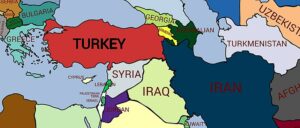
The significance of Turkey’s May 14 election

What Melville crafted might paradoxically be called a gothic humanism. While probing the depths of human depravity with lyricism and wit, Melville’s fiction directly confronted slavery and capitalism.

Bernie Sanders Suspends his Campaign
In the aftermath of Bernie Sanders’s suspension of his presidential campaign, analysis of what went wrong and possible ways forward will be essential, if painful, for the American Left. Understandably, those who went “all in” for . . .

In February of 2019, districts in the Turkish cities of Ankara and Istanbul began selling produce directly to consumers at local markets in an effort to bypass retailers, who had been characterized by President Recep Tayyip Erdoǧan as “terrorizing” society . . .
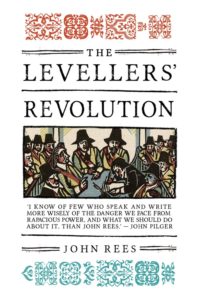
In 1649, a pamphlet titled Tyranipocrit Discovered was published in Rotterdam. Fusing the terms “tyrant” and “hypocrite,” the anonymous author called for an end to economic, religious, and political oppression in England.
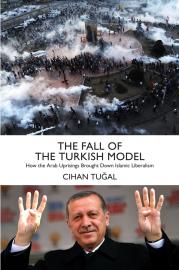
Cihan Tuğal, The Fall of the Turkish Model: How the Arab Uprisings Brought Down Islamic Liberalism (Verso, 2016).
In the short time since the 2016 publication of Cihan Tuğal’s The Fall of the Turkish Model: How the Arab Uprisings Brought Down Islamic Liberalism, Turkey has endured an attempted coup, nearly a year of rule under a state of emergency, the widespread repression of dissent through imprisonment and mass firings of teachers and civil servants, and a (likely fraudulent) referendum that has institutionalized the autocratic rule of President Tayyip Recep Erdoǧan. Yet, unbelievable as it may seem, these developments are part of a continuum rather than a rupture, and Tuğal’s book is essential—if not unproblematic—reading for understanding contemporary politics in Turkey, the Middle East and North Africa.
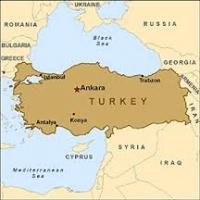 In a June 2015 election, the new People’s Democracy Party (HDP) of Turkey passed a highly undemocratic 10 percent threshold to enter the Turkish parliament.
In a June 2015 election, the new People’s Democracy Party (HDP) of Turkey passed a highly undemocratic 10 percent threshold to enter the Turkish parliament.
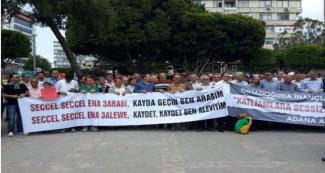
The October 10 Labor, Peace, and Democracy Rally in Turkey’s capital of Ankara was called to demand an end to the violent policies of the Turkish state. Organized by trade union federations and progressive organizations, the demonstration was also supported by the People’s Democracy Party (HDP), a leftwing pro-Kurdish party consistently demonized in recent months by the ruling Justice and Development Party (AKP).
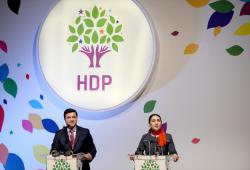
In the weeks leading up to the June 7 parliamentary election in Turkey communities across the country were gripped with a mixture of excitement, anxiety, and fear. Though President Tayyip Recep Erdoğan was supposed to be above the fray of party politics, the former two-term prime minister and co-founder of the Justice and Development Party (AKP) made no secret of his hopes for an AKP victory, as he rallied and spoke continuously in the weeks and months before the election. 367 seats in the 550-member parliament would make possible Erdoğan’s desire to change the Turkish government from a parliamentary to a presidential system, thereby enhancing executive, and Erdoğan’s, grip on political power.

On December 24 a sixteen-year-old student named Mehmet Emin Altunses was arrested in the Turkish city of Konya. His crime? Apparently the youth insulted President Tayyip Recep Erdoğan, saying in a speech that the new president (who served two terms as prime minister between 2003 and 2014) was “the leader of corruption, bribery and theft,” as well as the owner of an “illegal palace.”